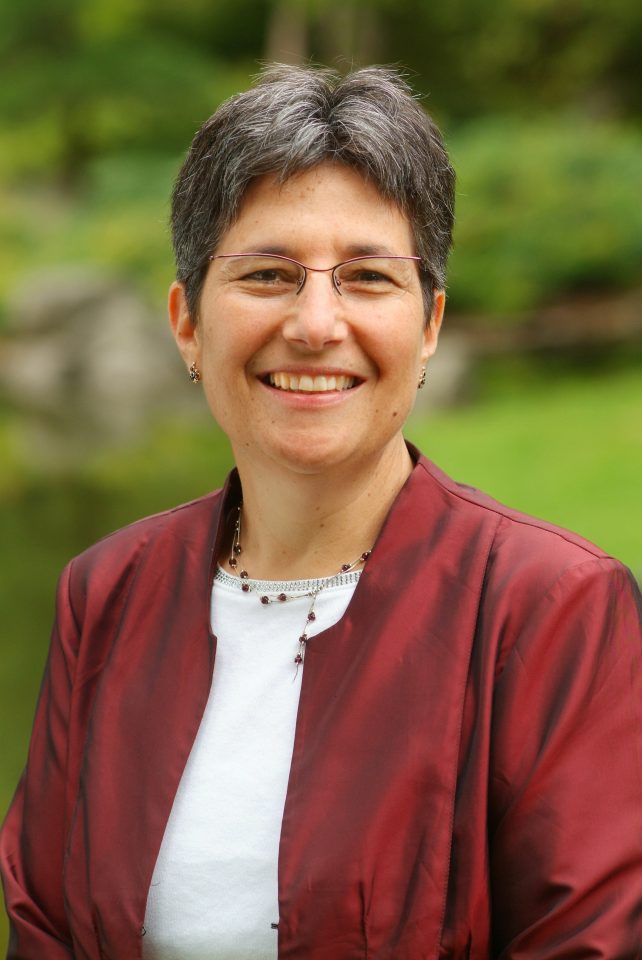
We are proud to announce that Professor Dr. Tal Jarus has received one of the UBC Faculty of Medicine’s (FoM’s) Distinguished Achievement Awards for Advancement of Equity, Diversity and Inclusiveness (EDI). These awards recognize “outstanding contributions in the area of EDI,” which Dr. Jarus has been advancing for decades through her research, teaching, and service at UBC, in Canada, and beyond.
This award builds on decades of allyship and advocacy for and with people from equity-denied groups. Dr. Jarus started her social justice activities shortly after coming out of the closet and, for the first time, realizing both her privileges and her lack thereof. She was very active in many of the Israeli social justice activities calling for justice for women and LGBT and for ending the Israeli occupation. Her activities revolutionized the legal rights of gay families in Israel. This “inspiring and courageous advoca[cy] in the human rights movement” for LGBTQ people in Israel led to her receiving the Felipa de Souza Award from the International Gay and Lesbian Human Rights Commission (now OutRight Action International) in 1998. Her commitment to her community continued when she immigrated to Canada. Since arriving in Vancouver, she has volunteered for numerous local organizations, including the accessibility committee of the Vancouver Folk Music Festival, VocalEye, and the Vancouver Blind Curling Club, to increase the accessibility of the arts and of leisure occupations. In 2022, she and the other volunteers at the Blind Curling Club received the SFU Gerontology Research Centre’s Seniors Leadership Award.
In addition to her advocacy and volunteering in the community, Dr. Jarus has made extensive contributions to justice, equity, diversity, and inclusion (JEDI) in academia and the health and human services (HHS) professions through her research, which investigates barriers to the full participation of diverse groups of equity-denied people, such as Indigenous Peoples and people with disabilities. Some examples of her work include the DREAM, a blended learning module for students in HHS programs living with disabilities, and Flow, a set of guidelines for best practices to promote inclusive fieldwork education. All HHS programs at UBC now offer Flow, and both the DREAM and Flow are now offered at all Canadian programs in OT. D’HoPE, an ongoing program designed to make the HHS programs at UBC more accessible to high school and undergraduate students from equity-denied groups, now encompasses seven HHS programs at UBC. Another remarkable project of Dr. Jarus’s is Alone in the Ring, a theatrical play, which, on the basis of a CIHR-funded grounded theory study that she led, embodies the institutional and interpersonal injustice that students and clinicians living with disabilities face daily in HHS programs. Alone in the Ring has been performed more than 30 times to over 2,500 people at local, national and international events.
Dr. Jarus’s commitment to advancing JEDI is further evidenced by her service to the profession and the university. She has initiated and co-created many local, national and international professional committees and activism groups (e.g. the Department of OSOT’s Community of Learning and Action; UBC’s Decolonizing and Indigenizing HHS Professions Community of Practice; CAOT’s JEDI Practice Network). She is also a member of numerous JEDI networks (e.g. UBC’s EDI Action Network), and she led the creation of a sharing circle program, which aims to facilitate discourse on decolonizing and Indigenizing the HHS programs at UBC. Sixteen programs at UBC Vancouver and UBC Okanagan have participated in this program. Dr. Jarus’s expertise in JEDI has led to invitations to join relevant committees and projects (e.g. the First Nations Health Authority-led BC First Nations Perspectives on Accessibility Advisory Committee) and to invitations as a plenary session presenter at local, national and international events (e.g. the World Occupational Science Congress, the International Congress on Academic Medicine, and the Nordic Network on Disability Research Conference). You can read more about Dr. Jarus’s perspectives on JEDI in her interview with the REDI team.
The impacts of Dr. Jarus’s contributions to JEDI have been widely recognized through highly competitive awards. To name a few, in 2018 she was named a Fellow of the Canadian Association of Occupational Therapists (CAOT), one of CAOT’s highest honours. In 2019, UBC’s Equity & Inclusion Office named her an Equity & Inclusion Scholar for a project to increase accessibility and equity in the HHS programs at UBC. In 2022, she and her team also received the Society of Teaching and Learning in Higher Education’s D2L Innovation Award in Teaching and Learning for their work on Alone in the Ring.
Dr. Jarus’s unwavering commitment to JEDI in the university, the HHS professions, and the community cannot be overstated. She is ethically committed to authentic, relevant collaboration, personifying the ethos of “nothing about us without us;” drawing on her lived experience as a queer woman, immigrant, and disabled person, she engages people from equity-denied groups as leaders and partners in all of her activities. It is clear that Dr. Jarus is not just talking the talk of advancing JEDI, but most definitely walking the walk. Please join us in congratulating her on this well-deserved award.